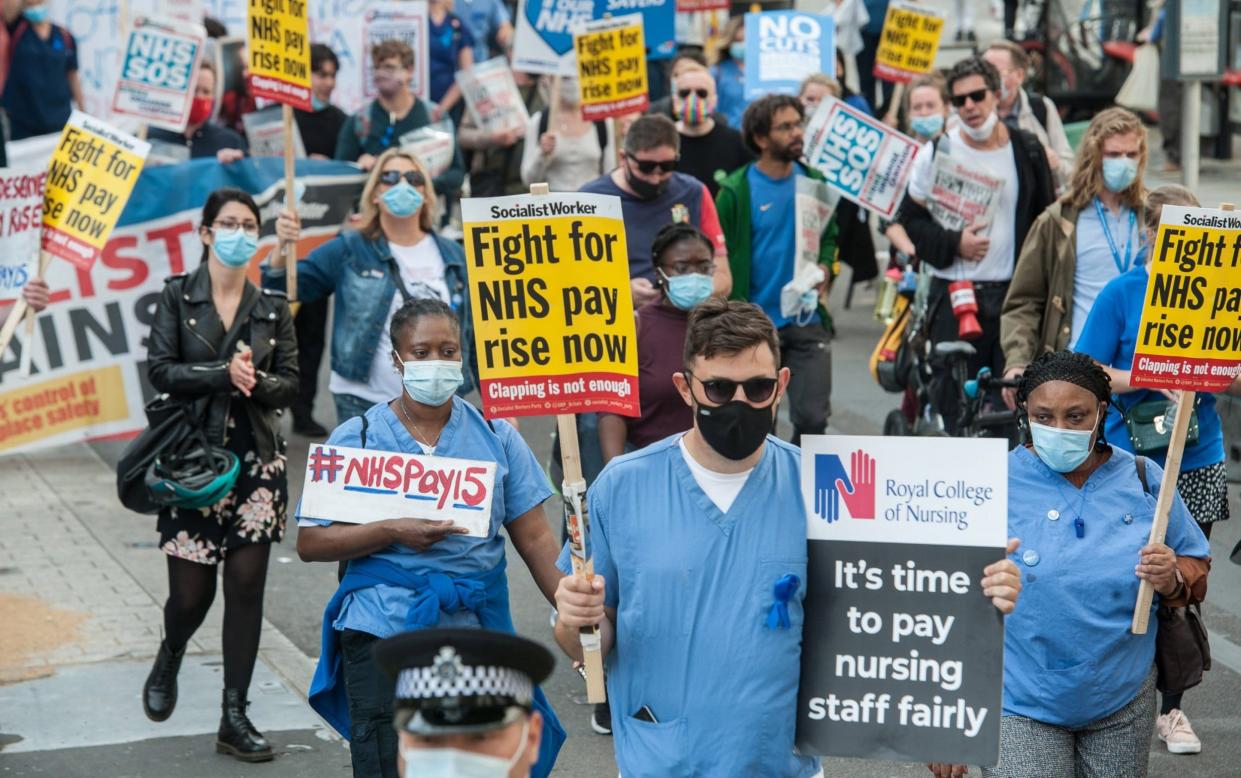NHS cap on senior doctors’ bonuses ‘will reward medics from all backgrounds’

NHS bonuses for hospital consultants will be capped in a diversity push that aims to share rewards more widely and boost uptake among women and ethnic minorities.
Currently, senior doctors can receive annual payments of up to £77,000 on top of six-figure salaries, under a system of merit awards.
Under the reforms, the maximum payment will be reduced to about £40,000, with the total pot shared among around twice as many medics, health officials say.
The changes will also mean that part-time medics who get an award will receive the same sum as those who work full-time, in a bid to address the gender pay gap.
Currently, around 80 per cent of recipients of national clinical excellence awards are made to men, and a similar proportion of recipients are white.
The rewards, paid on top of annual salaries of up to £114,000 a year, are supposed to recognise the best medics in the profession, under a system first introduced in 1948.
The shake-up follows a gender pay gap review of the NHS and criticism that the rewards reflect an “old boys’ club” culture in senior medicine.
Health officials said that consultants who have received bonuses under the current system will continue to get them until they are next reviewed, under five-year terms.
At this point, “pay protection” will be in place for five more years, meaning any drop in earnings would be delayed. In future, the annual awards will no longer be pensionable, reducing their long-term value.
The name of the system will also be changed with references to “excellence” dropped. Instead, they will be called “clinical impact awards”, with officials saying they would recognise a wider variety of work after the next round opens in April.
Under the current rules, awards are normally renewed after five years. However, the new system will see reapplications subject to open completion in an attempt to “create a more level playing field and reduce bias towards older, established award holders”.
About 600 national awards will be available annually, compared with 300 currently. The system will also change so that all applicants can apply for all types of awards, worth between £20,000 and £40,000 annually, rather than work their way up.
Officials said that the application process would be updated “to be fairer and more inclusive for under-represented groups such as women and people from ethnic minority backgrounds”.
Levelling the playing field
While excellence awards were often linked to research success, applicants will be expected to provide evidence that demonstrates their impact on current NHS priorities.
Prof Dame Jane Dacre, the chairman of the Gender Pay Gap Review, said: “I am pleased the new National Clinical Impact Awards will reflect the recommendations made in the gender pay gap review.
“I am particularly encouraged to see that those who work part-time (often women), will now be eligible for a full value award as awards will no longer be paid pro-rata.
“Highlighting the contributions from specialities, such as geriatrics and palliative medicine, with more female staff, will also help keep more talented women working in the NHS. Together these changes will encourage more women to apply for awards.”
Edward Argar, the Health Minister, said: “The new National Clinical Impact awards will help level the playing field and recognise the extraordinary contributions made by NHS doctors and dentists.
“We’re increasing the number of people who will be recognised, and making the awards more accessible for under-represented groups including women and younger consultants.
“It’s vital we celebrate the teachers, trainers, innovators and researchers of best practice across the NHS, who act as role models for their peers and colleagues.”

